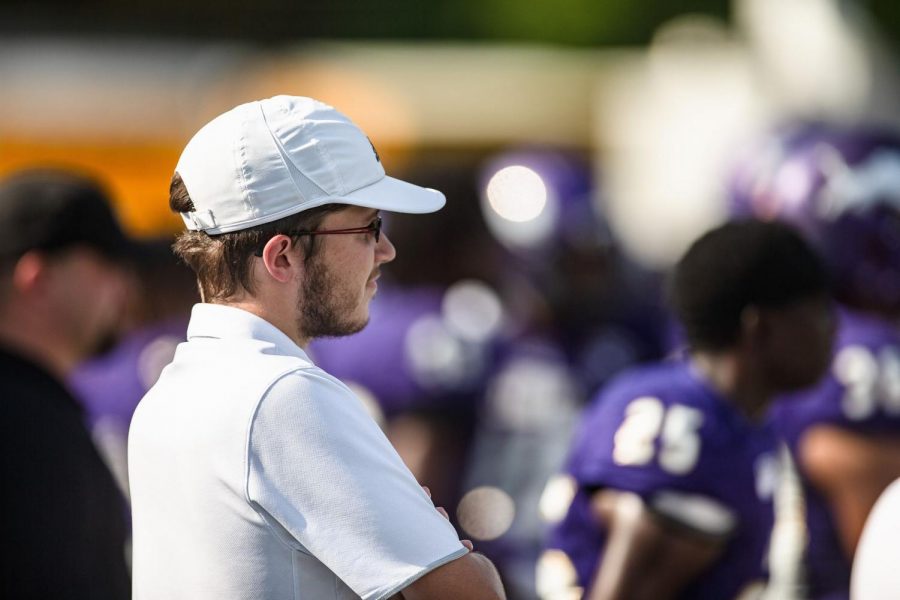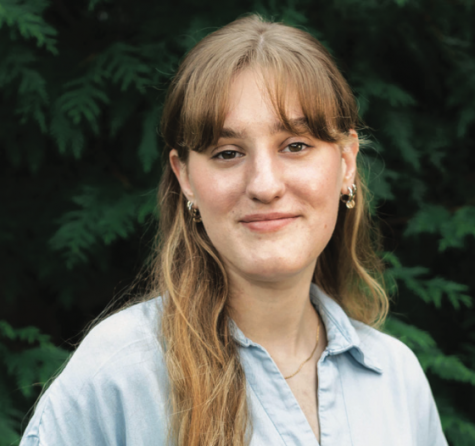Understanding students with autism
Photo courtesy of Joseph Roman Photography
UNA student TJ Crews talks about his experience with autism in high education as part of the Mitchell-West Center for Social Inclusion, DSS, and UNA UPC’s Diversity Education Week.
April 22, 2021
The Mitchell-West Center for Social Inclusion, along with several campus partners, held their annual Diversity Education Week.
Diversity Education Week offered opportunities for UNA students to attend workshops and panels all relating to creating a better understanding of “diverse cultures and intersectional identities.”
The events varied from understanding poverty, creating safe environments on campus, and understanding students on the autism spectrum.
As part of this week, the Center for Social Inclusion, Disability Support Services, and the SGA University Program Council held a screening of Autism: The Sequel.
Autism: the Sequel revisits the subjects of the 2007 Emmy-winning documentary Autism: The Musical.
The documentary offers an inside look into the daily challenges and triumphs of adults on the autism spectrum. The five students share their journey to higher education.
This documentary, released in 2020, has been praised for its unique look into adults with autism navigating independence.
Following the documentary, there was a panel of UNA students with autism who spoke about their unique experiences.
One panelist, TJ Crews hopes conversations like these will lead to more understanding for students with autism.
Crews is a junior history major with a minor in religious studies. Post graduation, he hopes to become a Civil War historian. Crews has also been the equipment manager for the football program at UNA for two years.
Two major struggles of being a student with autism stick out in his mind.
“Firstly my handwriting. I’ve struggled with it my entire life,” said Crews. “Second is my speech. I’ve been in speech therapy for years. It has helped some but, I still struggle with it.”
Crews also explains some misunderstandings he has come across being a person with autism.
“Some people think that all people with autism are alike,” said Crews. “Some people with autism may have low, medium, or high functioning autism as well as Asperger’s syndrome.”
“[as well as] different sets of symptoms, or as I call them – characteristics,” said Crews.
To further explain, Crews quoted Steven Shore, a professor with autism at Adelphi University.
“If you’ve met one person with autism – then you have met one person with autism,” said Crews.
Crews explained the autism spectrum.
“The spectrum to me is a spectrum of characteristics,” said Crews. “Someone with autism can have different characteristics than someone else with autism.”
“For example, I have extreme anxiety whenever I’m away from home or vacation, but someone else may not have that same characteristic.”
Another misunderstanding Crews has found is the push for students with autism in higher education to attend smaller universities as opposed to a university they would prefer to attend, regardless of size.
“People with autism just want to have the same experiences,” said Crews. “What everyone else has and an equal opportunity to shine.”
“Yes, with some help, but it can still be accomplished,” said Crews.
Crews describes the role UNA’s Disability Support Services plays in his education.
“They benefit me by helping me with classes, like accommodations,” said Cews. “Like extended time for test taking, distraction reduced environments, using a laptop for taking notes in class.”
“They’ve also helped me learn to advocate for myself as well,” said Crews.
Crews cites his proudest accomplishments in his education so far.
“I’m a member of two honor societies, Delta Alpha Pi and most recently Phi Alpha Beta. I also made the Dean’s list twice,” said Crews.
Through his involvement with the panel, Crews hopes conversations about autism will lead to more understanding from not just faculty but students as well.
“Understanding can go a long way especially with someone with autism like me,” said Crews. “Get to understand someone with autism and accept them for who they are – autism and all.”
“You can be aware of autism and not accept someone,” said Crews.
Crews provided a quote from To Kill a Mockingbird.
“You‘ll never really understand a person until you consider things from his point of view. Until you climb inside of his skin and walk around in it.”



